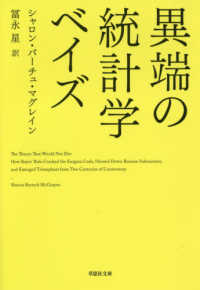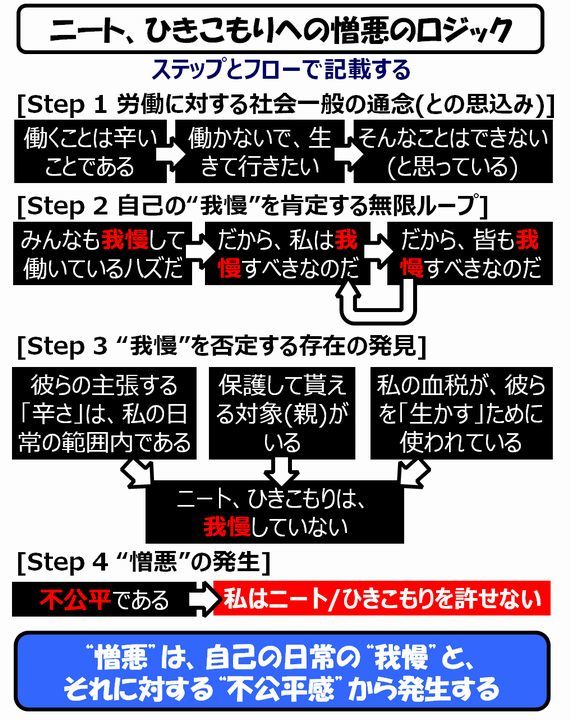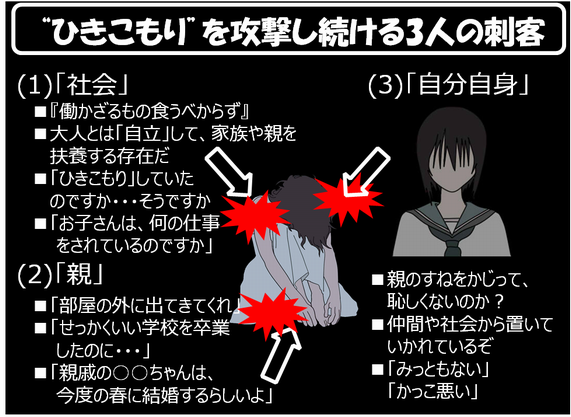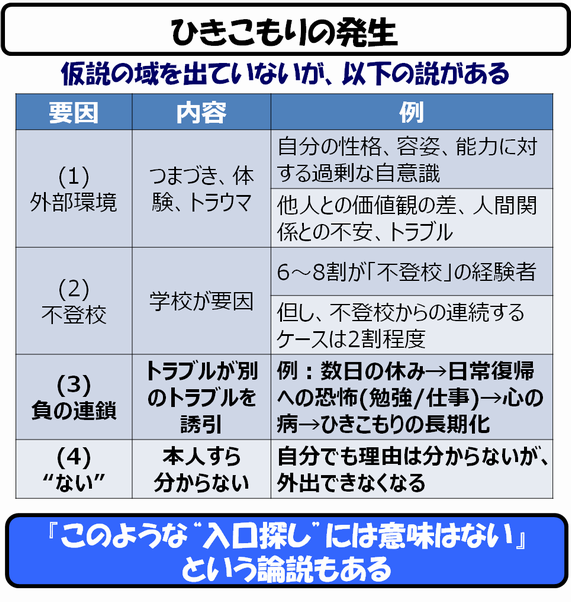「完全な『後出しじゃんけん』」のような話になりますが、『生成AI』に登場によって、私の過去に行った未来予想は、劇的に外れています。
It may sound like a 'total 'post-jumping' game,' but with the advent of 'generative AI,' the future predictions I made in the past have been dramatically off the mark.
特に電力予測については、ボロボロです。
There is no excuse, especially when it comes to my power forecasts.
一方、今後、技術革新が起こり『消費電力1/100』という半導体が登場してくる可能性だって否定できません。
On the other hand, we cannot deny the possibility that technological innovation will lead to the appearance of semiconductors with '1/100 power consumption' in the future.
そうすると、この予想が、もう一回ひっくり返る可能性があります。
The above forecast could turn upside down once more.
ともあれ、未来予想というのは、"もし、現在の状態が1mmも変化しなかったら"という前提が入らないとできないものです―― これは、私が以前より繰り返し申し上げてきたことです。
Anyway, we cannot make future projections without assuming that "the present state of affairs does not change by a single millimeter" - something I have repeatedly said.
[EE Times Japan]「英語に愛されないエンジニア」のための新行動論 ―番外編―:Twitter大嫌いな研究員が、覚悟を決めた日 http://t.co/YlZHRWn4
— ITmedia (@itmedia) May 8, 2012
だから、まあ、私は、未来を正確に言い当てられないことについて、謝罪もしませんし、自己批判もしません。
So, I make no apologies or self-criticism for not accurately stating the future.
だって、予測とはそういうものだからです。
Because that is what forecasting is all about.
-----
そういえば、面白いことを言っていた芸人さんがいました。
That said, there was a comedian who said something interesting.
録画していた朝のニュースの「本日の運勢」を、その日、寝る前に見るのだそうです。
Before going to bed that day, he watched the recorded 'Fortune of the Day' on the morning news.
そして、『なんか、全然当たっていないなぁ』と呟くのだそうです。
He then mutters, 'It was not right at all.'
これは、『占いというものが、全く当てにならない』ことを、その芸人さんが『強化学習している』と言えましょう。
It can be said to be 'reinforcement learning' by the comedian that 'fortune-telling is completely unreliable.'
-----
『リスク』と『不確実性』を混同している人は多いと思います。
'I think many people confuse 'risk' with 'uncertainty.'
簡単に言いますと『リスク』とは、確定した対象に対して付与される、確率によって計算可能な数値のことです。
Put, 'risk' is a number that can be calculated by probability and assigned to a definite object.
コインの裏表、または競馬などで使われる概念です。裏表以外の状態になるコインはないし、番号で表現できない馬券はありません。地震などの自然災害も計算可能なリスクです。
The two sides of a coin, or the concept used in horse racing. No coin can be in a state other than two sides of the same coin, and no horse race ticket can be represented by a number. Natural disasters such as earthquakes are also calculable risks.
比して、『不確実性』とは、対象すら分からない状況です。
In comparison, 'uncertainty' is a situation where the subject is unknown.
2年前の私たちは、生成AIの存在すら知りませんでした。当然、2年前に生成AIの電力や経済効果を予測なんてできません。
Two years ago, we did not even know that generative AI existed. Of course, we couldn't have predicted generative AI's power and economic benefits two years ago.
シミュレーションによる未来予測は『リスク』がベースになります。
Future forecasting through simulation is on a 'risk.' basis.
生成AIなどのような「爆弾」の登場に対しては、全く太刀打ちができません。
It cannot compete against the emergence of 'bombs' such as generative AI.
-----
『難しさ』の観点から記述すれば、
If described in terms of 'difficulty',
"不確実性予測 > シミュレーションによるリスク計算 >>>>>>>占い"
というような感じですかね。
"Uncertainty Forecasting > Simulation-based Risk Calculation >>>>>>> Fortune."
というか、正直に言えば『占いって、コストかかるんか?』と思っています(怪しげなコスプレやら、小道具の初期コストはいるかな、とは思いますが)。
Or, to be honest, 'does fortune-telling cost anything?' (although there are initial costs for dubious costumes and props).
占いに関して、科学的アプローチで体系的に纏まった書籍やら論文があったら、教えて下さい。
Please let us know if you know of any books or papers on divination that someone has systematically assembled using a scientific approach.
『占星学』という学問があったように思えますので、多分、あるはずです。
There seems to have been a discipline called 'astrology,' so there probably should be.
大学でのカテゴリなら、
In the category of universities,
■工学部データサイエンス学科
■ Department of Data Science, Faculty of Engineering
あるいは、案外、
Or, unsurprisingly,
■宗教学部 統計学科 未来予測センター
■ Faculty of Religious Studies Department of Statistics Centre for Future Prediction
みたいなものかもしれません。
It may be something like that.
それはさておき
apart from that
-----
ベイズ推定という、私が大好きな推論計算方法があるのですが、このベイズの最大の特徴は「事後確率」という概念です。
I love a method of inference calculation called Bayesian inference. Its most important feature is the concept of 'posterior probability.'
【新着記事】Over the AI ―― AIの向こう側に(6):時をかける人工知能 ~たった1つの数値で結果から原因に遡るhttps://t.co/EayMWGurch pic.twitter.com/2Wx78hoaUx
— EE Times Japan編集部 (@eetimes_jp) December 28, 2016
これ、簡単に言うと、確率というのは、事後的にコロコロ変わる、という考え方です(というか、今は、これが常識です)。
Simply put, this is the idea that probability is a posteriori colossal change (or, instead, it is now common knowledge).
ところが、統計学界の主流派「頻度主義者」により、「ベイズ」は200年近くの長きにわたり、異端視されてきました。これについては、私が、これまでも再三絶賛してきたこの本をお勧めします。
However, 'Bayes' has been considered heretical for nearly 200 years by mainstream 'frequencyists' in the statistical community. In this regard, I recommend this book, which I have repeatedly praised.
今日、ちょっと海外のドラマを見ていた思ったことがありました。
Today, I thought that I was watching an international drama.
いわゆる、「雪に閉ざされた山荘での密室殺人事件」です、毎日ひとりづつ殺されていく事件です。クリスティの「そして誰もいなくなった」を出すまでもなく、定番中の定番です。
It's the so-called 'locked-room murder case in a snowbound mountain villa,' where one person is killed every day. It's a classic, not to mention Christie's 'And Then There Were None'.
―― 毎日、だれかが殺される度に、生き残った人間の「犯人である確率」は上がっていくよなぁ
"Every day, every time someone dies, the survivor's "probability of being the killer" goes up, doesn't it?"
―― これって、典型的な「事後確率」じゃね?
"Isn't this typical 'posterior probability'?"
(ちなみに、殺された人間も、確率0に変動しています)
(Incidentally, the probability of a killed person also fluctuates to zero.)
こんな明々白々の事象に対して、なんで200年間も論争してきたんだろう、と不思議に思います。
I wonder why there has been 200 years of controversy over such a clear-cut event.
これは、いわゆる権威主義のなせる技でして、それについては、こちらをご一読下さい。
The above is what so-called authoritarianism does - read more about it here.
一方、この「雪に閉ざされた山荘」が、"異世界に転生する"という事象が発生すれば、これは『不確実性』の案件になります。
On the other hand, if this "snow-covered mountain villa" is "transferred to another world", this would be a case of "uncertainty".
ミステリーとしては台無しになりますけどね。
It spoils it as a mystery, though.



